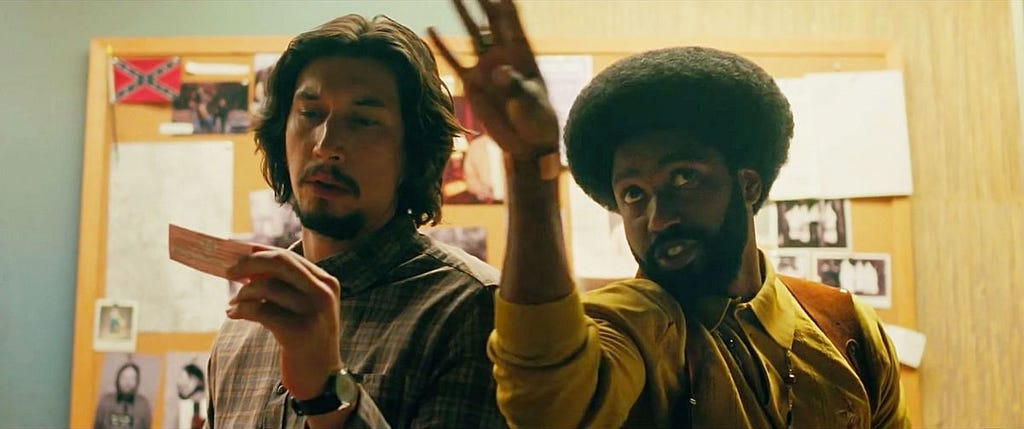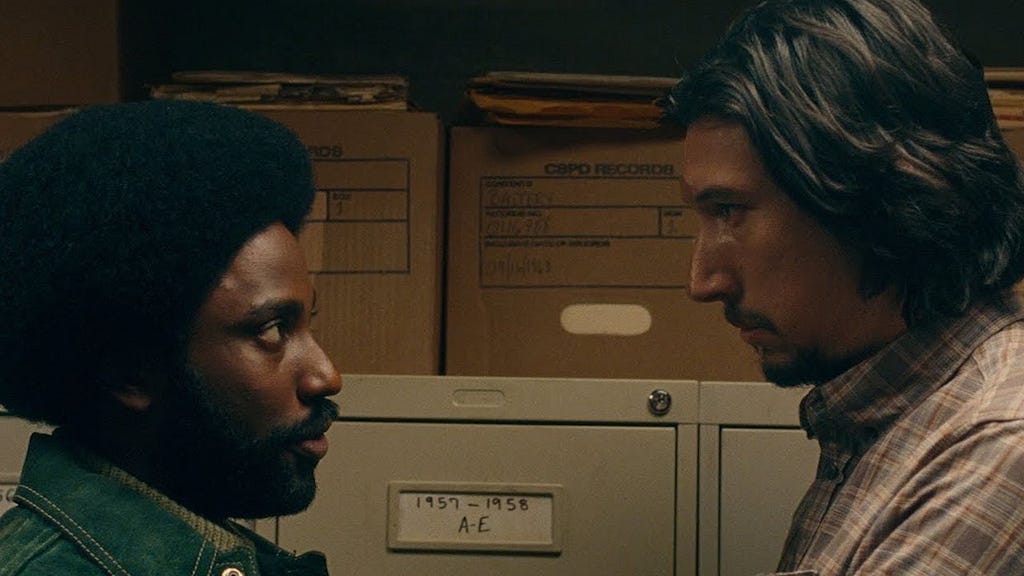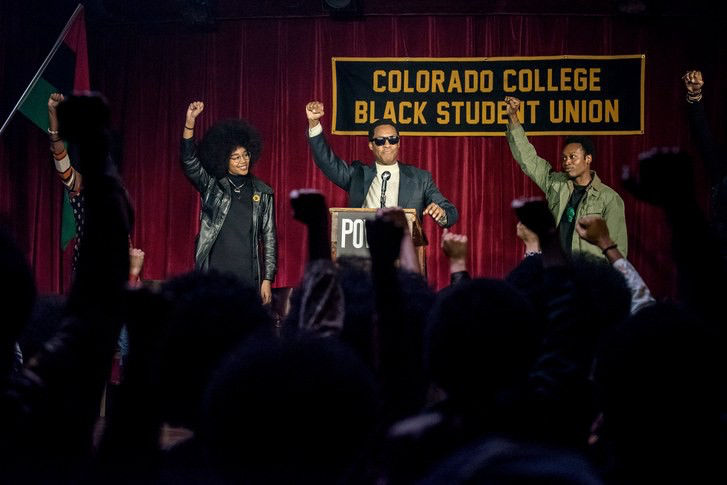
Vivid, violent, and vehement, Blackkklansman struck me from beginning to end with clear and high-pitched messages about police brutality, white supremacy, and Blackness in America. Spike Lee wields his latest film like an angry finger pointed at the brutal systematic problems centered in the American Civil Rights Movement of the 1960s and persist today. Blackklansman is so blatant that it’s uncomfortable — as it should be when watching racism unfold, whether on a movie screen or before my eyes.
Shortly after becoming the first African-American officer in the Colorado Springs Police Department, Ron Stallworth (John David Washington) leads an investigation to infiltrate the local chapter of the Ku Klux Klan and expose their record of hate-fueled violence. He joins forces with fellow undercover detective Flip Zimmerman (Adam Driver), who clumsily pretends to be the white version of Stallman and is inaugurated into the KKK. As a member, Stallman learns the white supremacists’ secrets while trying to balance his involvement in the growing Black Power movement.

The film’s greatest strengths are its main actors, Washington and Driver. The duo finagles its way through the KKK with some of the greatest musical bops of the ’60s as its backdrop, such as James Brown’s “I’m Black and I’m Proud” and Cornelius Brothers & Sister Rose’s “Too Late to Turn Back Now.” Washington portrays a Black man who feels both liberated and exhausted from constant conversations of racial politics and racial strife, especially when attempting to explain it to the white characters in the film — a daily experience many people of color share.
Blackkklansman ambitiously tries to unfold two stories at once: one depicting the police force infiltrating the KKK, and another following Stallworth as he struggles to align himself with both the Black Power movement and its enemy, the cops. The attempt to join these two narratives gives for a rocky, unsmooth pacing throughout the movie, one that occasionally lost my attention. The film also evokes a pro-police perspective in which the policemen are the heroes of the anti-racist movement. In light of today’s glaring problem of police brutality, I’m not sure if I was supposed to feel empathetic for the police force. I was left confused and conflicted about what Lee might have been trying to say. Maybe it was an attempt to offer “the other side” in the conflict to encourage critical thinking; maybe it was intended for comedic effect. Whether I was supposed to find the point of view ironic or educational, the attempt fell flat.

With that said, Blackkklansman redeems itself with a ludicrous David Duke character (Topher Grace) who made me laugh uncomfortably, cringe because it’s David Duke, and then cringe again at the character’s likeness to Donald Trump. There are, in addition, touches of subtle symbolism: in the police chief’s office, a clock ticks noticeably in the background. While the chief says, “This case is closed because there are no more credible threats [of the KKK] in the area,” the clock ticks on, loud and ominous. The irony in this scene, paired with the final montage of real-life footage of the white supremacist violence in Charlottesville, Virginia in 2017, coldly reminds audiences that the fight is never over. Most importantly, Lee reminds us that there’s so much more to the African-American existence in America than power struggles, “politics,” and protests; in truth, it also includes love and celebration of Black life and Black beauty via music, dance, and solidarity.
Blackkklansman was originally published in The Yale Herald on Medium, where people are continuing the conversation by highlighting and responding to this story.
